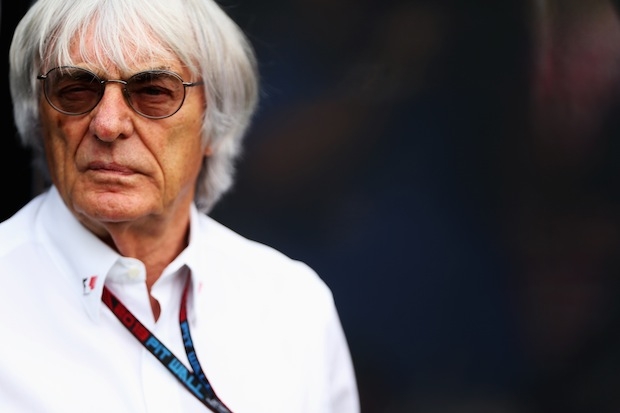Dividends paid by listed companies around the world passed $1 trillion for the first time last year, we learn from a report by Henderson Global Investors. The total is 43 per cent higher than it was in 2009, and a breakdown shows that US companies account for about a third of all dividends paid, while European companies have been relatively poor providers of investment income. The UK, representing about a tenth of the global total, offered 39 per cent dividend growth over the period.
So what, you might ask: why is a bigger bundle of global dividends a good thing? In Britain, the whole notion of dividend income for those wealthy enough to hold shares has had a bum rap during the downturn. Under pressure from regulators, banks either ceased to pay dividends at all or slashed them to a level lower than total bonuses paid to senior executives — in either case without provoking a shareholders’ revolt. Energy companies were accused by Ed Miliband of being sinfully ‘obsessed’ with dividend growth, as though there was some fundamental reason why shareholders might be willing to provide such companies with capital other than to earn a decent and rising return on it. In the continuing crisis of shrinking private-sector pension provision, the role of dividend growth in filling black holes has curiously been under-emphasised.
Let us therefore return to first principles. The basic mechanism of capitalism — a mighty force for progress and prosperity, even if it sometimes goes haywire — is that investors, individually or collectively, put savings at risk in return for capital growth or dividend income; when they invest in mature forms of business they largely expect the latter. On the whole it’s better for companies to finance expansion with equity rather than high levels of debt, so it’s healthy for shares to be competitive with bonds in terms of income offered relative to risk. It’s also healthy to reward investors appropriately before rewarding executives excessively — an issue of relativity that needs urgently and globally addressing. In short, in the turmoil of recent years, we seem to have forgotten why a healthy flow of dividends is essential to the balanced distribution of economic growth.
Battling Bernie
‘Bet you it doesn’t happen,’ was the comment of Formula 1’s Bernie Ecclestone on the prospect of being tried in Munich later this year on charges of paying $45 million in bribes to German banker Gerhard Gribkowsky to facilitate the sale of Bayern Landesbank’s F1 stake to private-equity group CVC in 2005. In a British court, Ecclestone has just defeated a suit against him by another former investor who claimed CVC had been allowed to buy into F1 too cheaply. No link was proved between the Gribkowsky deal and the sale value of F1 shares. But Gribkowsky has already been jailed in Germany for accepting the payments — which Mr Justice Newey, in last week’s hearing, described as ‘a bribe … made because Mr Ecclestone had entered into a corrupt agreement … under which Dr Gribkowsky was to be rewarded for facilitating the sale of Bayern Landesbank’s shares in the F1 Group to a buyer acceptable to Mr Ecclestone’.
Bernie’s response was to allege that Gribkowsky extorted the cash by threatening to make false claims to HMRC about an Ecclestone family trust. ‘Things happen in life’ is his own summing-up so far. They certainly do, and he will perhaps now also have to deal with a revival of the old urban myth that he had something to do with the Great Train Robbery in 1963. The rumour was so persistent that City bankers and lawyers used to quiz him about it as part of the ‘due diligence’ process for F1’s financing deals, but he eventually scotched it — by revealing a distant connection. Roy James, who drove one of the robbery’s getaway cars, had been a racing driver, a silversmith and a friend of the F1 champion Graham Hill. When James came out of prison he asked Ecclestone for a job — and was given the task of making a silver ‘Race Promoter of the Year’ trophy. ‘There wasn’t enough money on that train,’ Ecclestone mischievously told an interviewer in 2005. ‘I could have done something better than that.’ Still battling at 83, and still said to be worth £2.5 billion, I suppose you could say he has.
Unpleasantness in clubland
London’s clubland has survived the recent recession pretty well. A traditional members’ club is, after all, a very resilient business model: acutely responsive to the demands of a loyal customer base, paternalistic as an employer, cautiously shrewd in stewardship of long-term assets. On that description, indeed, you might say that most banks would probably be better run by club committees — who are also skilled at deflecting intrusive regulation, having ensured that neither the smoking ban nor Harriet Harman’s Equalities Act have been allowed to bring anything more than minor disturbance to the cigar-scented tenor of club life.
So I’m sorry to see that the convivial East India Club in St James’s Square has suffered a theft of more than £500,000 from its bank account. An arrest has been made, but it still sounds like a case for Dorothy L. Sayers’s Lord Peter Wimsey, who in The Unpleasantness at the Bellona Club (1928) uncovered the misdeeds of Dr Pemberthy, a murderer intent on stealing a fortune. Confronted at the Bellona, the doctor was offered a revolver and given a last chance to behave like a gentleman — provoking the immortal line from a fellow clubman: ‘I say, here’s another unpleasantness. Pemberthy’s shot himself in the library. People ought to have more consideration for the members.’
National service
My tip last week about reviving a dead Wi-Fi hub by jabbing it with a paperclip brings thanks from a reader whose email address includes, intriguingly, the letters GCHQ. I’m glad to be of service to the nation’s communication systems, secret or otherwise. Just make sure you don’t use a Chinese paperclip.







Comments